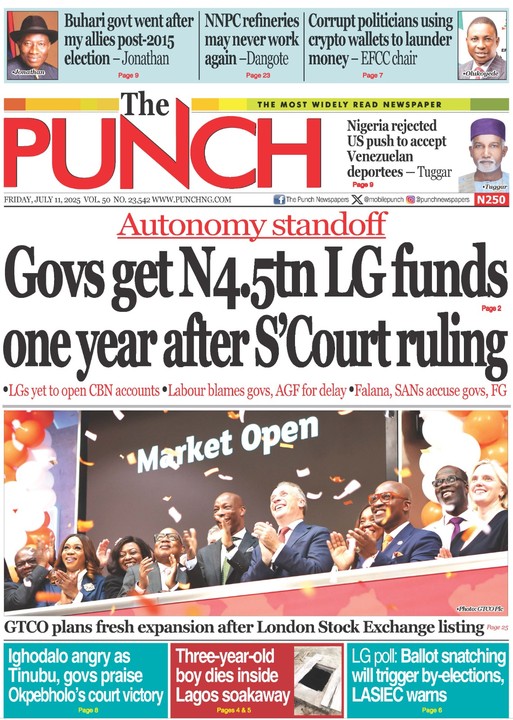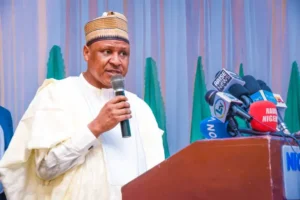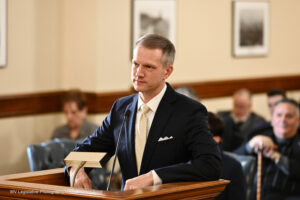It’s been one year since Nigeria’s Supreme Court ruled that all 774 local governments must receive their federal allocation directly. But sadly, nothing has changed. State governors are still collecting and controlling the money meant for local councils.
In July 2024, the court said that local governments should stop receiving money through state governors. It declared that this practice was against the Constitution. The ruling was supposed to give real financial freedom to local councils across the country.
To make this happen, the Federal Government set up a special committee and asked the Central Bank of Nigeria (CBN) to open accounts for every local government. These accounts would allow direct payments from the Federation Account.
But according to findings by The PUNCH, this order is not being followed. From July 2024 to June 2025, a total of ₦4.5 trillion was allocated to local governments, but it still went through the governors. That’s about 25% of the total federal allocation of ₦18 trillion for that period.
Despite the monthly funds being consistent, the method of disbursement is still wrong. Governors are still in control, which goes against the Supreme Court’s clear ruling.
An official at the Attorney General’s office said that the AGF is not responsible for disbursing funds. He explained that the implementation committee is led by the Secretary to the Government of the Federation (SGF), and all involved agencies—including labour unions—are expected to play their part.
The Association of Local Governments Employees (ALGON) said President Tinubu was made aware of the concerns from governors. He then asked the SGF and AGF to work on fixing the issues, and the process is still ongoing.
But in many states, there is no real progress. For example, Gombe, Kwara, Kano, and Benue states have not yet opened their CBN accounts. In Kwara and Kano, officials admitted that local governments still rely on the joint account system.
Even in Benue, where the government claimed local governments are autonomous, some chairmen said they still receive only ₦10 million monthly as “security vote” from the state—far less than the ₦385 million they are supposed to get. Some councils haven’t even been able to build a simple culvert.
Bayelsa admitted that it still runs a joint account system but claimed there’s no problem because salaries are paid and teachers are supported. In Nasarawa, the local governments have opened CBN accounts but are yet to receive any money directly from the federal government.
Some states like Bauchi are still struggling to open the required accounts. Others, like Jigawa, claimed they have achieved 95% financial freedom but admitted that some deductions are made from their funds for state projects. Meanwhile, Adamawa State is the only state so far that fully follows the Supreme Court order. Councils in Adamawa get their money directly, thanks to Governor Ahmadu Fintiri who implemented autonomy before the court ruling.
Top lawyers in Nigeria, including Mike Ozekhome, Femi Falana, and Paul Obi, have slammed both state and federal governments for ignoring the Supreme Court ruling. They called the situation a clear disrespect to the rule of law. Falana even questioned why the Attorney General has not taken stronger action to force compliance.
Ozekhome explained that many local council chairmen are not elected but appointed by governors, making them powerless. Falana also noted that asking LGs to submit audit reports is unfair since they never managed their own funds in the past.
Professor Itse Sagay, however, shared a different opinion. He said that while the judgment was good, the Constitution still recognises the Joint Account system, and until it is amended, full implementation may not be possible.
In the end, experts agree that the lack of political will is the biggest problem. Without serious efforts by both the federal and state governments, local councils will continue to be powerless, and the Supreme Court’s ruling will remain just a paper judgment.







